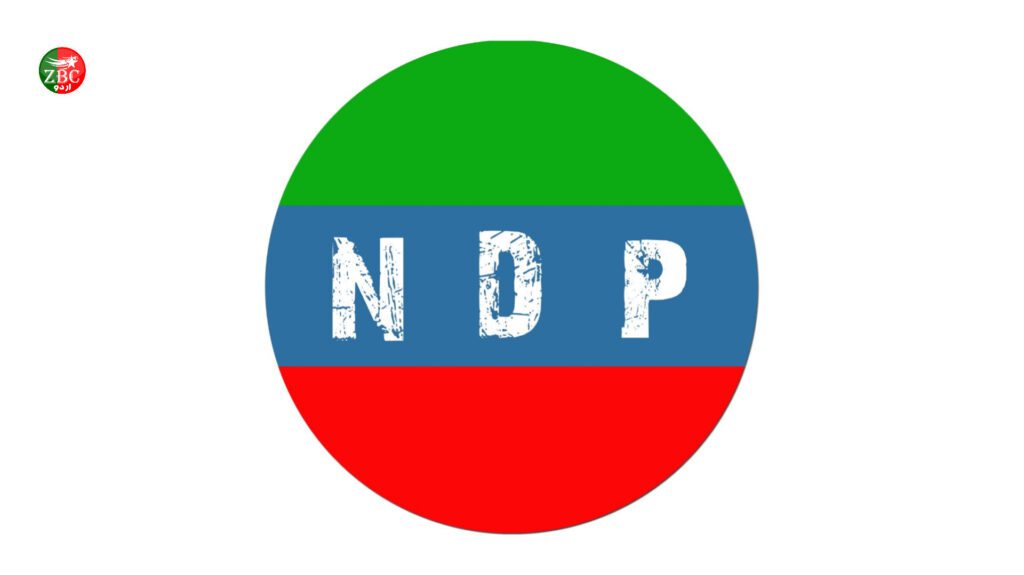
The 15th Central Organizing Body meeting of the National Democratic Party (NDP) was held in Shaal on August 9, 2025, presided over by Central Organizer Advocate Shahzaib Baloch. The agenda included the secretary’s report, reports from various committees, constructive criticism, discussions on global and regional political situations, organizational matters and the future course of action.
The seat of the party’s Central Organizing Committee member, Ghani Baloch, who has been forcibly disappeared, was left vacant as a symbolic gesture, creating a solemn and protest-oriented atmosphere from the very beginning of the meeting.
The meeting began with two minutes of silence in memory of the Martyrs of Balochistan, followed by proceedings on the formal agenda. The first agenda item was the presentation of the secretary’s report by the deputy organizer, detailing the party’s recent political and organizational activities, achievements, challenges and progress in various sectors. Subsequently, representatives of different committees presented their performance reports, covering ongoing activities, objectives, resource utilization and public outreach efforts.
During the constructive criticism session, all reports and past performances were openly discussed. Participants appreciated the positive aspects and provided constructive suggestions where shortcomings were noted. In the discussion on international affairs, reference was made to Donald Trump’s policies, highlighting his approach of balancing relations with major world powers while prioritizing national and economic interests. In this context, detailed discussions were held on relations with Russia, China, India and Israel, as well as on the role of the United States in the Iran-Israel war. Leaders noted that global trends such as data science and artificial intelligence could bring fundamental changes to social and political structures.
On the current situation in Balochistan, it was stated that the ongoing operations and arrests are not merely for security concerns or crime prevention but constitute a political crackdown targeting politically aware activists and student leaders. The meeting condemned the use of arrests, enforced disappearances and judicial processes as tools against political workers. The harassment of families of missing persons protesting in Islamabad was termed a violation of democratic values.
Serious concern was expressed over the increase in enforced disappearances, extrajudicial killings, the growing power of death squads and the impunity for killings. It was said that such measures destroy political and social trust and are part of imperialist policies. The strategy of alienating the public from the political process, creating economic pressure and pushing them toward corruption was also discussed.
Regarding border issues, it was noted that state projects are being used not only to control the economy and trade but also as tools to suppress political workers. The importance of local intellectuals in shaping public narratives and presenting them in the media was emphasized.
Concerns were raised over fears that Balochistan’s coastline might be leased to the United States, which could have deep geopolitical consequences for the region, making it essential to keep a close watch. The need to recognize strategies where imperialist policies present certain representatives as the voice of the oppressed was also stressed.
In the ideological discussion, it was noted that Marxism has influenced national movements, but in some cases, attempts were made to implement ideology rigidly without adapting to circumstances, which was impractical. The conservative nature of tribal and religious structures in Baloch society and the need for intellectual and practical modernization were emphasized. A clear plan, strategy and stance were deemed essential to avoid internal civil conflict.
For the Baloch national right to self-determination, social, economic, political and personal freedoms were deemed necessary. Public consciousness was identified as the real strength of the movement, with political training emphasized as the top priority. Institutional politics and continuous struggle were considered the guarantee of success.
The future plan included strengthening the organizational structure, expanding the public outreach campaign and enhancing the training of workers. The resignation of comrade Ashfaq Baloch was accepted and his services were acknowledged. Every member at the meeting expressed their commitment to continuing the party’s mission and struggle.

